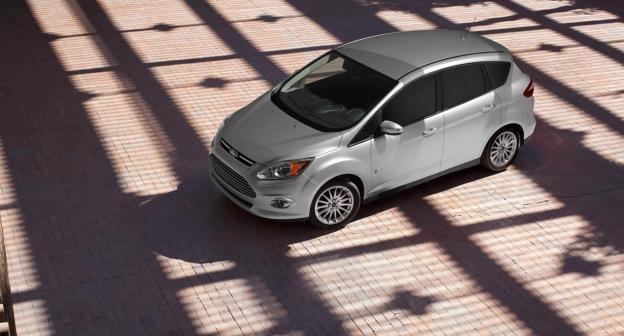 Ford is being sued by owners of the 2013 Fusion Hybrid and C-Max Hybrid, who say the company’s official fuel economy claims are exaggerated, Bloomberg News reports.
Ford is being sued by owners of the 2013 Fusion Hybrid and C-Max Hybrid, who say the company’s official fuel economy claims are exaggerated, Bloomberg News reports.
“Plaintiffs are some of the tens of thousands of consumers who purchased a Fusion Hybrid or C-Max Hybrid, only to be stuck with under-performing, less-valuable vehicles that inflict higher fuel costs on their owners,” the complaint, filed Tuesday in federal court in Philadelphia, said.
Ford has been dogged by claims of fuel economy underperformance since December, when journalists and owners alike began reporting low numbers.
Both cars are rated at 47 mpg in all three EPA categories (city, highway, combined), but in Consumer Reports’ full test, the Fusion Hybrid returned 39 mpg, while the C-Max Hybrid returned 37 mpg.
This led the EPA to investigate the discrepancy, while Ford began talks with the agency about the fuel economy tests themselves. Both sides seemed to agree that driving a hybrid involves more variables than a normal car, and that real-world fuel economy figures were more likely to fluctuate.
“There’s absolutely no doubt: A hybrid is going to be far more variable than a conventional vehicle,” Linc Wehrly, director of light duty vehicle compliance at the EPA’s Ann Arbor, Michigan test facility told the Detroit News at the time.
In addition, Ford says its hybrids are designed to drive like normal cars first, and hybrids second. This is especially true of the C-Max, which is advertised as a more powerful, sportier alternative to the Toyota Prius V.
Making a car fun to drive isn’t a bad thing, but enthusiastic driving tends to negatively affect fuel economy. It’s also not something that’s easily accounted for in controlled tests.
The EPA’s investigation hasn’t found any wrongdoing on Ford’s part so far, but the lawsuit accuses Ford of fraud and violating Pennsylvania’s unfair trade practices and consumer protection laws.
The plaintiffs are seeking at least $5 million in damages, probably to pay off their gas cards.


